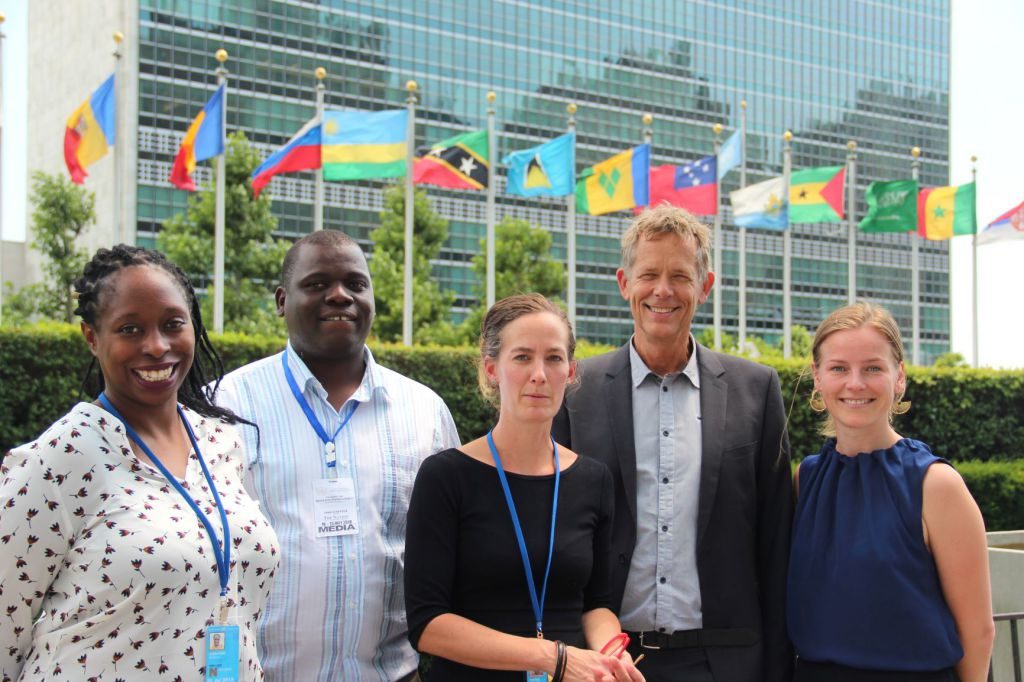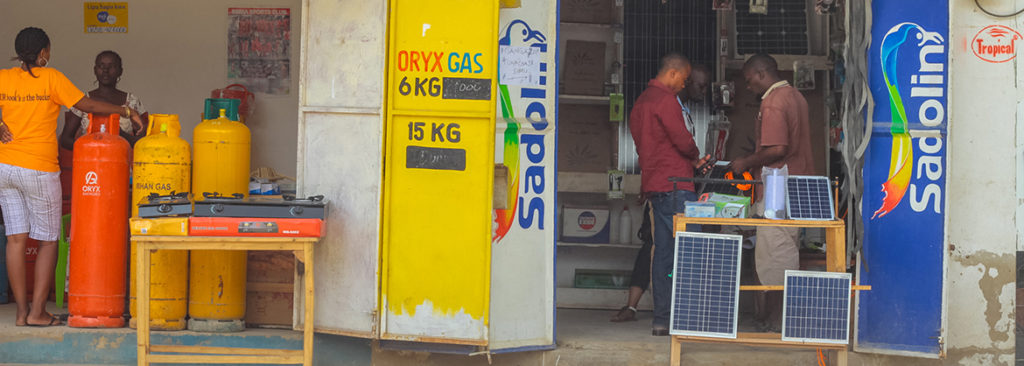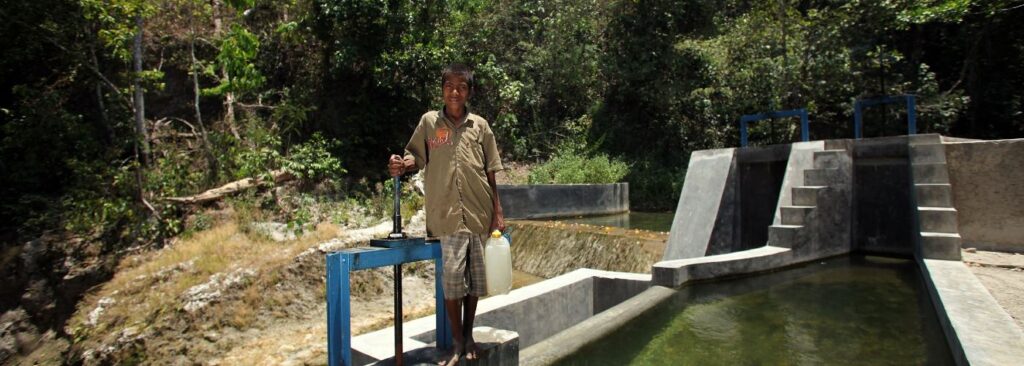A journalist who is “fueling” clean energy conversations
Simple energy technologies can save lives and trees when made available, James Chavula writes. The Malawian journalist, supported by Hivos’ Green and Inclusive Energy Program, is on a mission to shake up the energy debate in his country. His groundbreaking stories reveal a major problem in Malawi: only 10 percent of the population has access to electricity, and the vast majority still rely on firewood and charcoal for cooking. James experienced the consequences of this first-hand when growing up in a rural area in Malawi.
“I saw my mom suffer from severe coughing because she always cooked on an open fire. Years later, when I attended a course in philosophy at the Seminary of Malawi, I realized how important it is to question everyday things that people in my country take for granted. It is not normal that my mom is coughing so severely. And it is not normal compared to other countries that in Malawi we have power blackouts that can last up to 36 hours.”
James’ mother, Lucy, is not the only one who experiences the negative effects of using firewood and charcoal. In Malawi, women and girls in rural areas walk for hours every day to collect firewood for cooking. Not only does this accelerate deforestation, but it also affects the health of thousands of Malawians.
And this is not just a problem in Malawi. The World Health Organization (WHO) estimates that air pollution caused by cooking with firewood or charcoal kills almost four people every eight seconds worldwide. Malaria, tuberculosis and AIDS combined kill fewer.
Through the Energy Journalism Workshop, the Hivos Green and Inclusive Energy program in partnership with Climate Tracker supports journalists around the world who shed light on issues such as these. At the training, journalists like James are taught to use positive storytelling to call for cleaner, more sustainable energy in their countries.
James sat down with us to explain how the training helped him draw attention to the lack of clean energy supplies in Malawi.
How can you raise awareness for this topic as a journalist?
“Being a journalist allows me to have a voice in the energy debate in my country and ask the difficult questions everyone else avoids. Most journalists who talk about the lack of energy supplies in Malawi don’t look at the human side, but at the science of it. I learnt that a good story about energy is not just about the technicalities of energy supplies; it’s also about improving livelihoods because of everything that becomes possible if people have access to energy, such as better jobs, healthcare and schooling. For example, when a household has energy, girls can go to school instead of searching for firewood. I am very excited to tell these kinds of stories to the world.”
We need to keep the clean energy issue alive.
James is one of the very few journalists who focuses on energy and the positive impact it has on people’s lives in Malawi, which was a dictatorship until 1993 and where journalism is still very much focused on politics. James wants to shift the focus of journalism to personal stories that can change the conversation about energy and end poverty.
“I think journalists have an important role to play in developing a culture of demanding accountability. I personally want to draw the attention of government officials, entrepreneurs, NGOs and other stakeholders to the importance of clean energy in people’s everyday lives. Take lighting, for example. Right now, most Malawians use unhealthy candles and kerosene lamps. If we provide households, hospitals, businesses and schools with solar panels that give them power after sunset, we can help uplift whole communities. But to make that happen, we need subsidies to make solar power affordable and education on how to use the solar panels properly. As a journalist, I want to push these kinds of topics higher on the political agenda.”
James’ efforts in trying to change the role of journalism in his country did not go unnoticed. He was selected as one of the winners of the UN’s Voices of a Brighter Future journalism competition on sustainable energy reporting for his captivating stories about clean energy in Malawi.
What effect did the UN award have?
“After I received the award from the UN, I heard they are already talking about my clean cooking story at the ministerial level in Malawi. This shows that storytelling does help to change the conversation.”
Changing the conversation about energy is something that not only needs to happen in Malawi, but also at an international level. That’s why we invited James to the UN High Level Political Forum (HLPF) on Sustainable Development in New York. Representatives of Hivos’ Green and Inclusive Energy program and the ENERGIA program were present as well to raise awareness on the still undervalued importance of clean cooking (e.g. without charcoal or firewood). At the forum, James saw for himself how decisions on this topic are made at an international level. It also let him expand his network and rally support for his mission.
“I want to contribute to an active community of journalists who can tell stories of change and put these topics on the political agenda. At the HLPF and at the training provided through Hivos, I learnt how we can work together to tell the energy story from many different perspectives. I encourage young journalists to share our stories and skills so we can strengthen each other and tell even better stories. We need to keep the clean energy issue alive and continue to show its importance, because if Malawians have better access to clean energy, we do not only save trees. We also help save lives.”
What does the future of energy look like in Malawi?
“The number of people calling for cleaner energy in my country is growing. For example, I met a 28-year-old entrepreneur who managed to make a hospital run fully on solar energy. While previously women had to give birth under candle light, surgeries can now be held at any moment and medicines can be stored in a cool place. It’s these kinds of stories that need to be told and that give me hope for the future of energy in Malawi. In the future, I hope my children can grow up in a home where charcoal and firewood are absolutely not done.”







